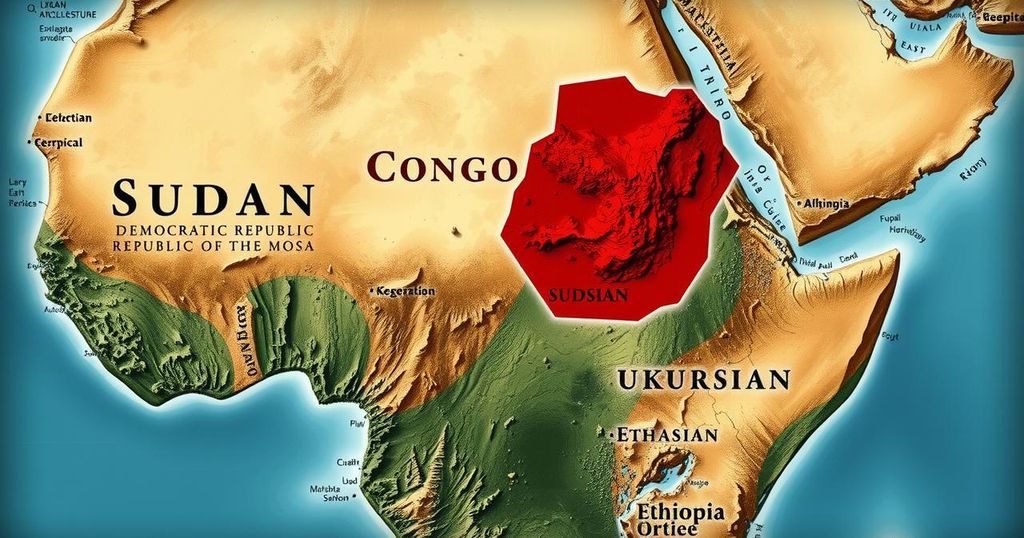The article reports on escalating humanitarian crises in several regions: in Gaza, significant civilian casualties and displacement occur due to bombardments. In Sudan, escalating violence endangers civilians. The Democratic Republic of the Congo faces violent clashes impairing aid operations. Ethiopia is recovering from conflict impacts in Tigray, and Ukraine continues to deal with casualties and infrastructure damage from attacks.
In the Occupied Palestinian Territory, a recent bombardment in Gaza has led to significant civilian casualties, including the death of a United Nations staff member. Secretary-General António Guterres has condemned the attacks on UN personnel, urging for a comprehensive investigation. The humanitarian situation has worsened due to ongoing bombings, mass displacements, and the destruction of essential infrastructure, severely affecting women and children.
Evacuation orders prompted by the conflict have forced thousands to flee their homes. Many families in southern Gaza are seeking refuge with relatives, while others have moved to public schools or local shelters in northern regions. Basic necessities such as food, clean water, and clothing remain urgently needed, compounded by a blockade that has suspended humanitarian aid for 18 days. Furthermore, hospitals are struggling to provide medical care amidst a shortage of supplies and fuel, and education has been interrupted for thousands of children.
In Sudan, the growing violence in Khartoum State poses a significant risk to civilians. Recent attacks have targeted residential areas, leading to fatalities and injuries among innocents. The UN has condemned these acts, emphasizing the need for all conflict parties to protect civilian lives and infrastructure. Meanwhile, the situation in North Darfur remains dire, with armed clashes displacing individuals into overcrowded camps facing famine conditions, further straining limited resources.
The Democratic Republic of the Congo is witnessing escalating violence that endangers humanitarian operations. Clashes in North Kivu have resulted in civilian deaths, while South Kivu is struggling to assist over one million people due to ongoing hostilities. Recent clashes in Ituri have displaced thousands, and in Haut-Lomami, armed violence has forced significant relocations.
In Ethiopia, efforts to support individuals in Tigray continue as the region recovers from recent conflicts. The sustainability of efforts under the Cessation of Hostilities Agreement is paramount for lasting peace and to prevent further humanitarian crises. The UN and local partners are committed to supporting government-led initiatives to ensure the well-being of displaced populations.
Finally, hostilities in Ukraine persist, with continual drone strikes impacting civilian areas. Recent attacks have resulted in casualties across multiple regions and damage to essential healthcare facilities, including hospitals in Sumy that were forced to evacuate patients. Humanitarian organizations are actively providing support to those affected by these ongoing conflicts.
The article highlights critical humanitarian crises in various global regions, particularly in the Occupied Palestinian Territory, Sudan, the Democratic Republic of the Congo, Ethiopia, and Ukraine. Each area is facing severe challenges, including civilian casualties, widespread displacement, and disruptions to essential services. Urgent international attention and aid are required to address the devastating consequences of ongoing conflicts and to support vulnerable populations in desperate need of assistance.
Original Source: www.unocha.org




